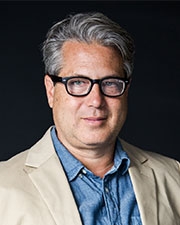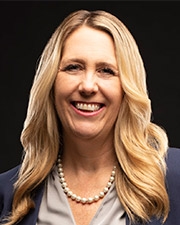Shaping a legendary literacy journal’s future
The RTE Team: (Front row from left) Gerald Campano, Amy Stornaiuolo, and Ebony Elizabeth Thomas. (Back row) Penn GSE students Emily Plummer, James Joshua Coleman, and Emily Rose Schwab.
When Penn GSE’s Gerald Campano, Ebony Elizabeth Thomas, and Amy Stornaiuolo were offered the chance to edit one of the preeminent journals in the study of literacy, they saw a chance to expand a conversation.
In their new role as editors of Research in the Teaching of English (RTE), a storied journal in the field published by the National Council of Teachers of English, the trio want to hear from a wider array of voices, both inside and outside the academy. And they want to ask new questions about what it means to teach and study language in the 21st century.
“We want to build off of the good work in the past and long-standing traditions,” Campano said. “But we see an opportunity to bring in many of the intellectual legacies that been pushed to the margins.”
In their first issue as editors, they laid out some of the many issues they hope to explore: “Along with longstanding considerations of race, gender, class, and colonialism in the teaching of English, the editorial vision encompasses current critical perspectives on ethnicity, sexuality, religion, dis/ability, and research ethics.”
While RTE has taken a global perspective before, Campano, Thomas, and Stornaiuolo are also seeking research from countries and cultures around the world where the teaching and learning of English(es) happen alongside, oftentimes in tension with, the teaching and learning of other languages.
“Social justice and equity more generally are really important to all of us,” Stornaiuolo said. “We can push the field and authors within the field to really consider those implications along with their research, and make it explicit in their articles.”
As editors, they also want to recognize how the field, and academia, are changing, Thomas said. Initially getting published in RTE was significant for all three — an RTE citation can be a crucial line on the CV of an early-career scholar.
But as the number of university instructors and researchers without full-time affiliations grows, the editors wanted to create sections that are freely available to the public. In the future, they hope these sections will create a conversation across fields that brings new authors and readers to the journal.
“We’ve talked about creating a forum for artists and activists, while also maintaining the rigor of the journal and realizing those pages are precious for people who are on the traditional tenure track,” Thomas said. “We want to try to balance the needs of our different audiences.”
Originally, Campano was approached about editing the journal. But he wanted other perspectives, so he turned to Thomas and Stornaiuolo, who share his ideals about collaboration.
“We believe progress in terms of knowledge production, but also political progress, happens when people work alongside one another,” Campano said. “That’s not often valued in the academy.”
So far, the process has worked for them.
“Manuscripts can often go between two or three of us, but each of us has a particular area,” Stornaiuolo said. “Gerald focuses on elementary levels, community-based work, and working with immigrant populations. Ebony focuses more on literature, I focus on digital literacy issues. Ebony and I both look at adolescence. Gerald and I both look at global citizenship. We have these really interesting overlaps.”
“We are just a great team,” Thomas added.
The next issue will be published in March.


